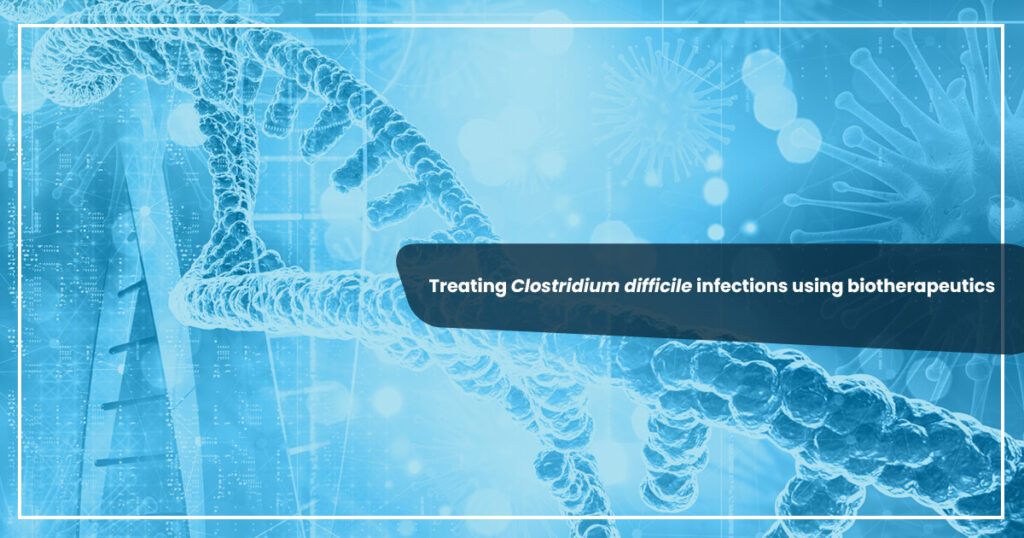Treating Clostridium difficile infections using biotherapeutics
Biotherapeutics are therapies that are essentially based on isolating large molecules of proteins, produced by live organisms, engineered to prevent, treat, and cure various disease conditions, instead of chemically synthesizing drugs in the laboratory. Patients across the globe have benefitted from the use of biotherapeutics to treat various disease conditions like cancer, diabetes, and rare illnesses. Clostridium difficile Being structurally similar to molecules that are naturally produced in the human body they have a significant therapeutic impact in many disease areas. Moreover, studies have proven that they are more efficacious in treating the conditions that fail to be addressed by chemically synthesized drugs [1].
What Biologics Developers Need to Know about ICH Q2 and Q14 Revisions
Clostridium difficile is one of the most prevalent causative agents in bacterial infections around the world. The most common symptoms include diarrhea, fever, stomach pain, loss of appetite, and nausea. According to a study by Zhang et al. (2022), in recent years, in the United States, there have been 450,000 new cases and more than 29,000 mortalities reported in a year [2]. It is estimated by the Center for Disease Control and Prevention (CDC) that about one in six patients suffer from recurrent C. difficile infection in the following 2-8 weeks and about one in eleven patients above the age group of 65 years die within one month of being diagnosed with Clostridium difficile infection, thereby declaring it as a public health emergency by the U.S[3]. Moreover, with the emergence of new hypervirulent strains of clostridium, there has been a resurge in the morbidity and development of resistance to standard therapies, creating an urgent need for new therapeutics.
The gut environment serves as a primary defense against Clostridium difficile colonization; however, the use of antibiotics causes the gut microbiota dysbiosis eventually leading to resistance to infection. The human gastrointestinal (GI) tract is a reservoir for a huge amount of gut microbiota. Although under normal conditions, the host and the microbiota share a symbiotic relationship; dysbiosis of the gut microflora is associated with many diseases. This host-gut microbiota interaction has triggered a variety of research in the past few years. With time and advancement in technology, an in-depth understanding of the GI microbiota and interaction between host and residential bacteria is revealed[4].
Although various therapies are available for the treatment of Clostridium difficile infection, most remain curative, poorly standardized, and lead to health consequences and develop resistance. C. difficile infection prevention will be highly effective given the promise biotherapeutics are showing and RBX2660 is one of its kind therapies that has shown promising results in the clinical studies in treating recurrent C. difficile infections.
- Ifpma.org. [cited 2022 Aug 12]. Available from: https://www.ifpma.org/wp-content/uploads/2016/01/IFPMA-BiotheraputicsWeb4.pdf
- Zhang Y, Saint Fleur A, Feng H. The development of live biotherapeutics against Clostridioides difficile infection towards reconstituting gut microbiota. Gut Microbes [Internet]. 2022 [cited 2022 Aug 12];14(1):2052698. Available from: https://pubmed.ncbi.nlm.nih.gov/35319337/
- Cdc.gov. [cited 2022 Aug 16]. Available from: https://www.cdc.gov/cdiff/what-is.html
- Van Giau V, Lee H, An SSA, Hulme J. Recent advances in the treatment of C. difficile using biotherapeutic agents. Infect Drug Resist [Internet]. 2019 [cited 2022 Aug 16];12:1597–615. Available from: https://pubmed.ncbi.nlm.nih.gov/31354309/
- Orenstein R, Dubberke ER, Khanna S, Lee CH, Yoho D, Johnson S, et al. Durable reduction of Clostridioides difficile infection recurrence and microbiome restoration after treatment with RBX2660: results from an open-label phase 2 clinical trial. BMC Infect Dis [Internet]. 2022;22(1):245. Available from: http://dx.doi.org/10.1186/s12879-022-07256-y
- Center for Biologics Evaluation, Research. Biologics license applications (BLA) process (CBER) [Internet]. U.S. Food and Drug Administration. FDA; [cited 2022 Aug 16]. Available from: https://www.fda.gov/vaccines-blood-biologics/development-approval-process-cber/biologics-license-applications-bla-process-cber

